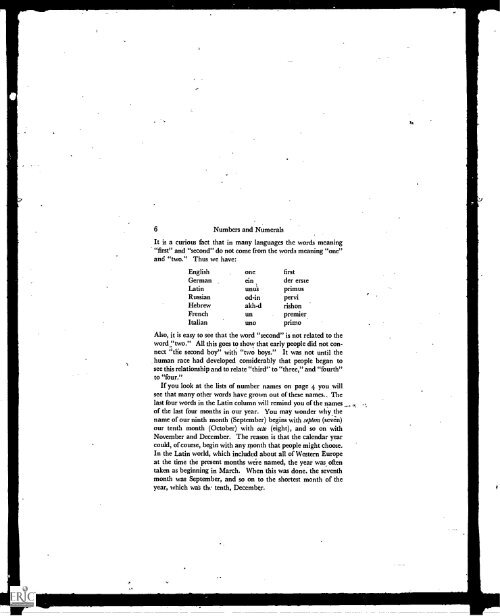ED077712
ED077712
ED077712
You also want an ePaper? Increase the reach of your titles
YUMPU automatically turns print PDFs into web optimized ePapers that Google loves.
kt<br />
6 Numbers and Numerals<br />
It is a curious fact that in many languages the words meaning<br />
"first" and "second" do not come from the words meaning "one"<br />
and "two." Thus we have:<br />
English one first<br />
German ein der erste<br />
Latin<br />
u n u:s<br />
pperirvmius<br />
Russian od-in<br />
Hebrew akh-d rishon<br />
French un premier<br />
Italian uno primo<br />
Also, it is easy to see that the word "second" is not related to the<br />
word `two." All this goes to show that early people did not connect<br />
"tfie second boy" with "two boys." It was not until the<br />
human race had developed considerably that people began to<br />
see this relationship and to relate "third" to "three," and "fourth"<br />
to "four."<br />
If you look at the lists of number names on page 4 you will<br />
see that many other words have grown out of these names The<br />
last four words in the Latin column will remind you of the names<br />
of the last four months in our year. You may wonder why the<br />
name of our ninth month (September) begins with septem (seven)<br />
our tenth month (October) with octo (eight), and so on with<br />
November and December. The reason is that the calendar year<br />
could, of course, begin with any month that people might choose.<br />
In the Latin world, which included about all of Western Europe<br />
at the time the present months were named, the year was often<br />
taken as beginning in March. When this was done, the seventh<br />
month was September, and so on to the shortest month of the<br />
year, which was tht. tenth, Decembqr.





